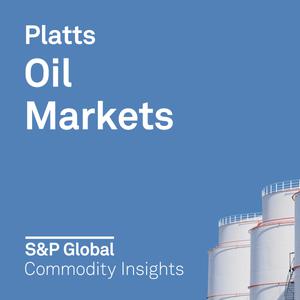
Oil Markets
S&P Global Commodity Insights
- 25 minutes 48 secondsNew sanctions on tankers and implications for China and India's oil imports
The recent expansions of the US Office of Foreign Asset Control (OFAC) vessel sanction list have sent shockwaves throughout the tankers and crude oil markets, raising questions about potential shifts in crude import strategies for China and India. Market participants are closely monitoring the extent to which Iranian and Russian crude exports may be disrupted, how major importers like China and India are adapting, and how sanctions may evolve under the new US administration.
In this episode, Benjamin Tang, liquid bulk team lead at S&P Global Commodities at Sea, is joined by Yen Ling Song, associate director for S&P Global Commodities at Sea, and Sameer Mohindru, senior editor for shipping and freight at S&P Global Commodity Insights to discuss the implications of the latest US sanctions targeting Russia’s oil tanker fleet and their far-reaching effects on global oil markets.
31 January 2025, 12:47 pm - 10 minutes 56 secondsUnderstanding the rise in Northwest European gasoline stocks
With European stockpiles of gasoline reaching uncharacteristically high levels in recent weeks, Joel Hanley is joined in this episode by Ernest Puey and Matthew Tracey-Cook. Together, they delve into the factors driving the incentive to store gasoline and explore the latest shifts in the product’s flows across the Atlantic Basin.
Links: Platts 10ppm Premium AR barges - PGABM00 Platts Eurobob FOB ARA barges - AAQZV00 Platts Eurobob AR FOB barge derivative time spread - GAMBM01
London Energy Forum: https://commodityinsights.spglobal.com/LondonEnergy-Forum.html
ARA gasoline stocks at multi-year high; naphtha stocks rise 8.1%: Insights Global European gasoline exports shift as Nigerian imports hit record low: CAS US President Trump to impose 25% tariffs on imports from Mexico, Canada starting Feb 1
23 January 2025, 2:19 pm - 24 minutes 54 seconds2025 opens with fire and ice for US refiners
US refiners have had a dramatic start to the new year, facing wintry blasts on the East Coast and devastating wildfires on the West Coast. Plummeting transportation fuel demand in Southern California, strong heating fuel demand in the Northeast, and cheap blending components in the Gulf Coast have created a balancing act for producers and shippers of gasoline and distillates -- and consumers pay the price.
Jeff Mower discusses the weather events, seasonal supply and demand, price movements, and more with senior downstream editor Janet McGurty, Americas light ends manager Sarah Hernandez and Americas middle distillates manager Jordan Daniel.
16 January 2025, 11:00 am - 12 minutes 52 secondsExploring the dynamics of Midland crude supply and Asian demand in the Atlantic market
High volumes of WTI Midland crude arrived in Europe in December, significantly impacting light sweet sentiment in both the North Sea and West African markets. As we enter the new year, a resurgence of demand from Asia is beginning to reshape the landscape. Joel Hanley is joined by Joey Daly and George Delaney to explore the effects of renewed Asian demand for Western barrels and reflect on a month of record-breaking activity in the Platts North Sea physical Market on Close assessment process.
Links: Dated Brent - PCAAS00 Bonny Light FOB Nigeria London vs WAF Dtd Strip - AAGXL00 Girassol FOB Angola vs Angola Dtd Strip - AASJD00 WTI Midland CIF Rotterdam vs Fwd Dated Brent - WMCRB00
Boost in eastern demand supports North Sea, Angolan crude grade upticks (subscriber content) Midland volumes pressure European sweets in December (subscriber content) London Energy Forum: https://commodityinsights.spglobal.com/LondonEnergy-Forum.html
9 January 2025, 12:28 pm - 37 minutes 21 secondsOil market dynamics in 2024 and the path to 2025
It’s been quite the year for oil markets. In this special episode of the podcast, Joel Hanley, Jeff Mower, Sambit Mohanty and Richard Swann look back at 2024 and try to untangle the biggest themes, including slowing demand growth, the incoming Trump administration, and the formidable challenge for OPEC+ in its quest for market control. The panel also discusses trade flows, new crude supply, and how changes in China’s economic fortunes could have a major impact going into 2025.
Links: Shadow fleets: The covert armada defying oil sanctions
12 December 2024, 10:43 am - 14 minutes 17 secondsReturning Russian gasoline exports, implications for global product markets
The Russian government's announcement of the partial resumption of gasoline exports by the country's refineries comes at a time when global oil product flows are constantly evolving.
In this episode of the Platts Oil Markets podcast, Francesco Di Salvo is joined by Elza Turner, Robert Perkins and Matthew Tracey-Cook to discuss the reasons behind Russia's decision and what it means for product trading patterns along the length of the oil barrel and across global markets.
Links: 10ppm Premium FOB AR gasoline barges - PGABM00 FOB MED Premium gasoline cargoes - AAWZA00 Eurobob FOB ARA barges - AAQZV00 Russia lifts gasoline export ban for refineries - Subscriber content Russian refineries runs likely to suffer on poor margins - Subscriber content
5 December 2024, 11:23 am - 19 minutes 15 secondsChinese exports’ tax rebate cuts: a precursor to another US-China trade war in 2025?
China will slash its clean oil product export tax rebates from 13% to 9% starting December 1, which will likely dampen outflows from Asia’s third-largest oil product exporter. While this move may be seen as China laying the groundwork for potential trade talks with the US, other factors, such as capacity rationalization and mounting government debt, could also be at play.
In light of a potential US-China trade war, Commodity Insights’ Asia oil news editor Neo Rong Wei, market specialist Oceana Zhou, and AltView’s Grace Lee discuss in the latest episode of the Oil Markets podcast how this could bode well for Chinese oil demand, while exploring the wider implications these developments may have on regional crude and oil product markets in the year ahead.
Related content:
AltView Short-Term Outlook Storyboard
Trump election neutral for Chinese oil demand as Beijing looks inward
China's VAT rebate reduction to discourage clean oil product exports in 2025
28 November 2024, 8:54 am - 18 minutes 29 secondsThe African refining revolution: challenges and opportunities
After several false starts in developing domestic refining capacity, the African continent is now home to one of the world's largest refineries. But while Nigeria's Dangote refinery was expected to meet domestic fuel demand, distribution costs and affordability issues have driven it to export markets.
With new projects soon to come on stream in Angola, Congo, Ghana and elsewhere, Francesco Di Salvo, Matthew Tracey-Cook and Kelly Norways discuss on the latest Oil Markets podcast episode the prospects for African refiners to meet the region's growing demand for oil, amid competitive start-ups in the Middle East and decarbonisation initiatives abroad.
Links: Gasoline Prem Unleaded 10ppmS FOB AR Barge - PGABM00 Gasoline CIF West Africa Cargo $/mt - AGNWC00 Nigeria's Dangote refinery to export first gasoline as local market struggles (subscriber content) Africa's refining resurgence on course despite margin risk (subscriber content)
21 November 2024, 11:18 am - 28 minutes 57 secondsWhat will Trump’s second term mean for US refining and biofuels?
Much has been said about Donald Trump's ambitions in upstream oil sector, specifically his promise to unleash US oil producers and boost output. Conventional oil refiners, many of which have invested in renewables, are hopeful that Trump will reduce support for electric vehicles, propping up demand for conventional fuels. Biofuels producers are looking for Trump to maintain the tax incentives that have incentivized investments in the industry under Joe Biden’s administration, and are hoping for an expansion of E15 blended gasoline. However, tariffs remain the wild card.
Jeff Mower discusses these developments with senior downstream editor Janet McGurty, policy editor Eamonn Brennan, and US biofuels and feedstocks price editor Guadalupe Nunez.
14 November 2024, 11:00 am - 19 minutes 23 secondsPrice, not the president: OPEC+ policy as Trump returns
The election of Donald Trump for a second term as US president has brought significant attention to US energy policy. Meanwhile, OPEC+ announced on November 3 its decision to delay tapering production cuts of 2.2 million b/d from December to January, having previously postponed from October 2024.
As markets absorb president-elect Trump’s victory, Payam Hashempour and Charlie Mitchell join Joel Hanley to analyze OPEC+ policy amid and beyond this political shake-up affecting the cartel’s major producer counterpart across the Atlantic.
Related content:
OPEC+ delays plan to ease crude oil output cuts by one monthTrack our US Elections coverage
Price assesments:
7 November 2024, 9:53 am - 18 minutes 18 secondsPermian production and potential pipeline pileups
Crude production in the Permian Basin is growing, but pipeline capacity growth out of the West Texas/New Mexico play is lagging. With Permian crude output expected to reach roughly 7 million b/d by December 2025, some industry watchers are concerned that tight exit capacity could lead to wider crude price discounts for Midland WTI. Will the market see a repeat of August 2018, when the WTI Midland discount widened to $20/b because exit capacity fell short? Does US crude export growth present another potential bottleneck? And what does lower-than-expected US crude export demand mean for several planned terminal expansion on the US Gulf Coast?
Jeff Mower, director of Americas oil news, discusses pipeline capacity, crude export demand, and more with senior upstream oil editor Starr Spencer and midstream oil editor Binish Azhar.
31 October 2024, 4:08 pm - More Episodes? Get the App
Your feedback is valuable to us. Should you encounter any bugs, glitches, lack of functionality or other problems, please email us on [email protected] or join Moon.FM Telegram Group where you can talk directly to the dev team who are happy to answer any queries.
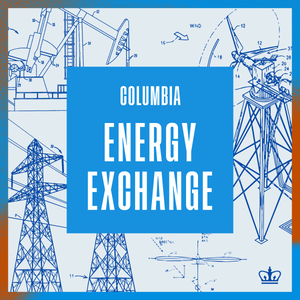 Columbia Energy Exchange
Columbia Energy Exchange
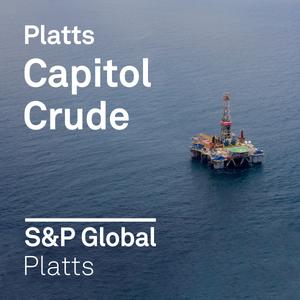 Capitol Crude: The US Oil Policy Podcast
Capitol Crude: The US Oil Policy Podcast
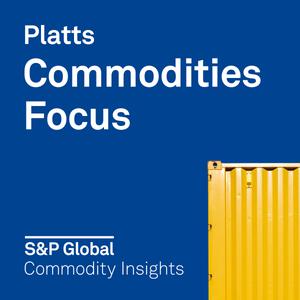 Commodities Focus
Commodities Focus
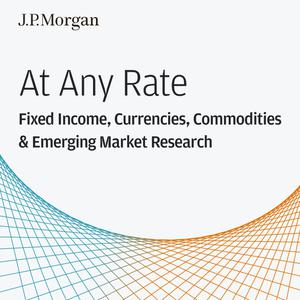 At Any Rate
At Any Rate
 The HC Commodities Podcast
The HC Commodities Podcast
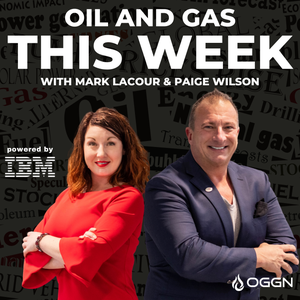 Oil and Gas This Week Podcast
Oil and Gas This Week Podcast